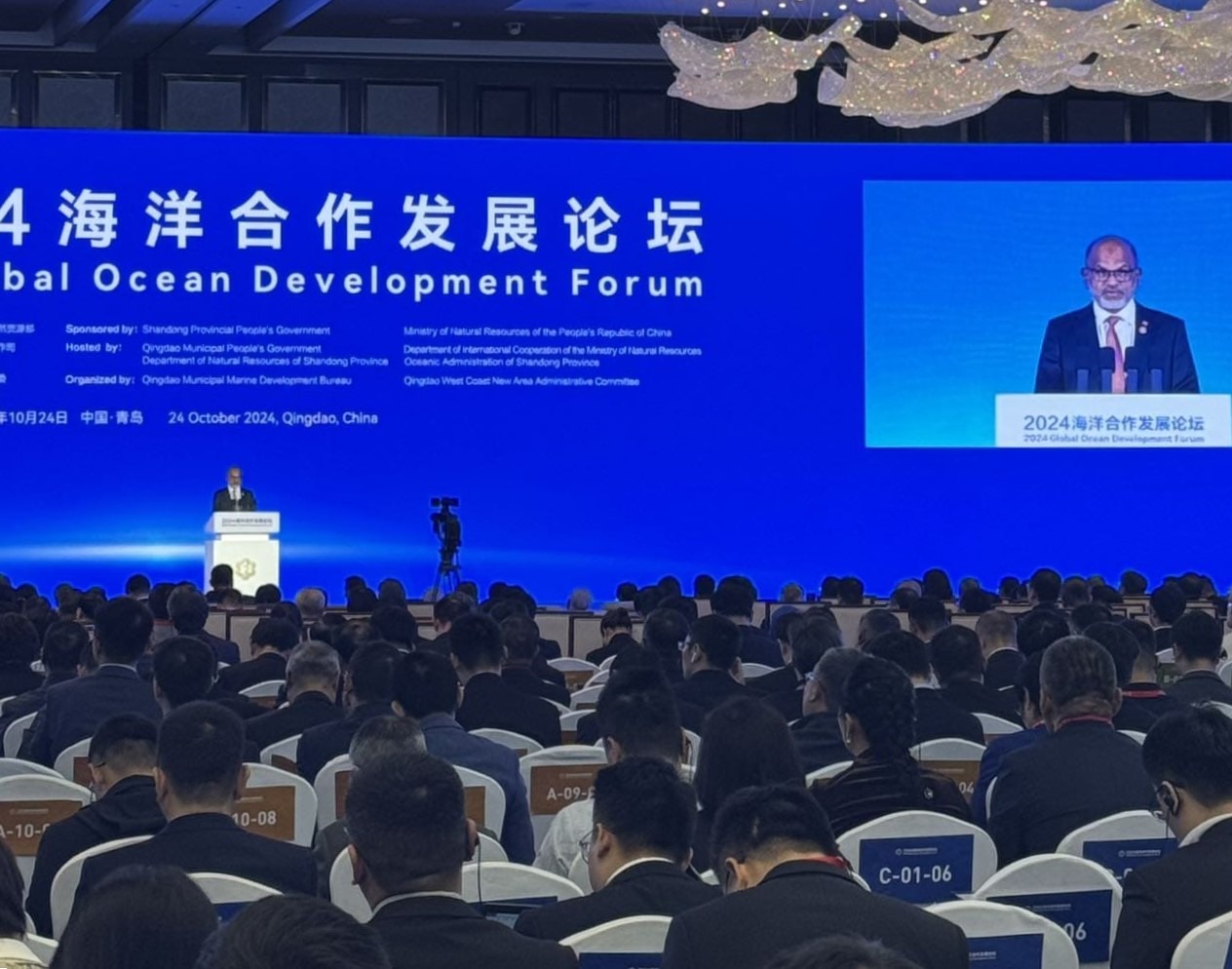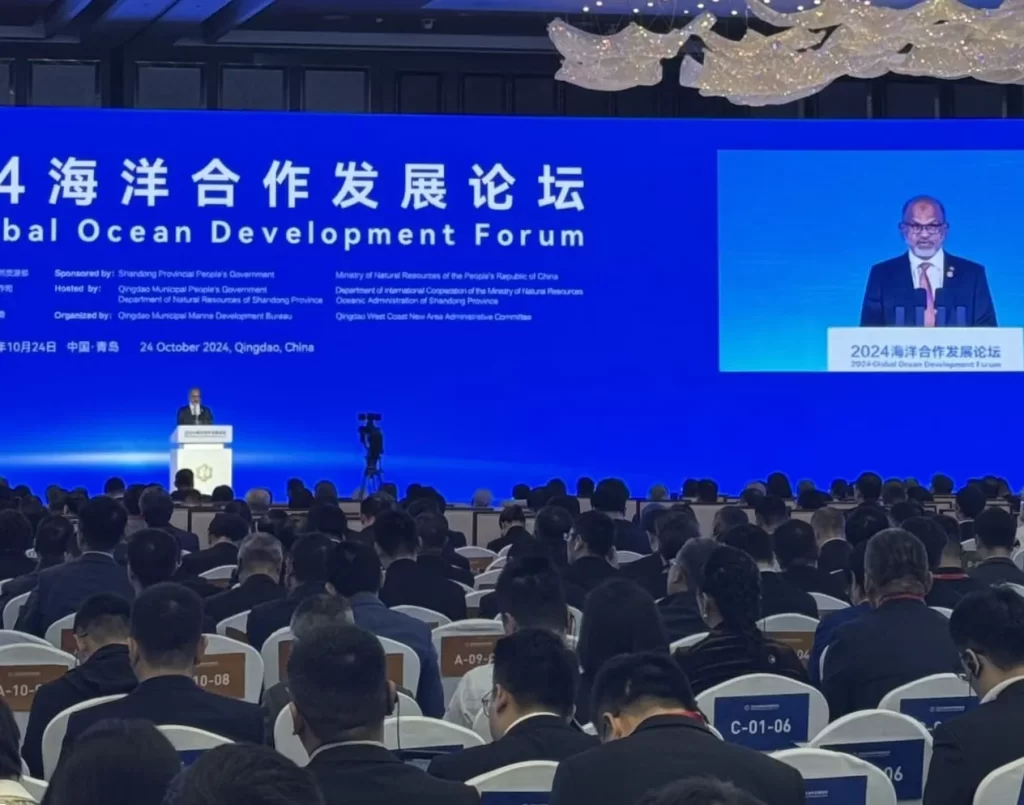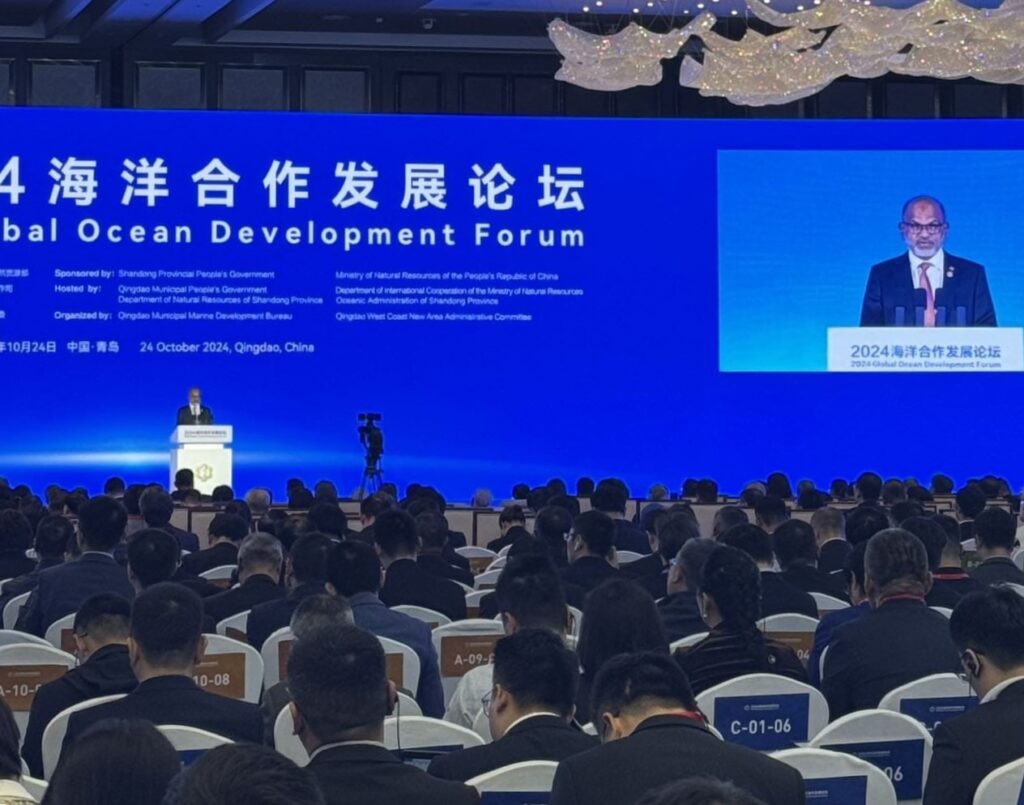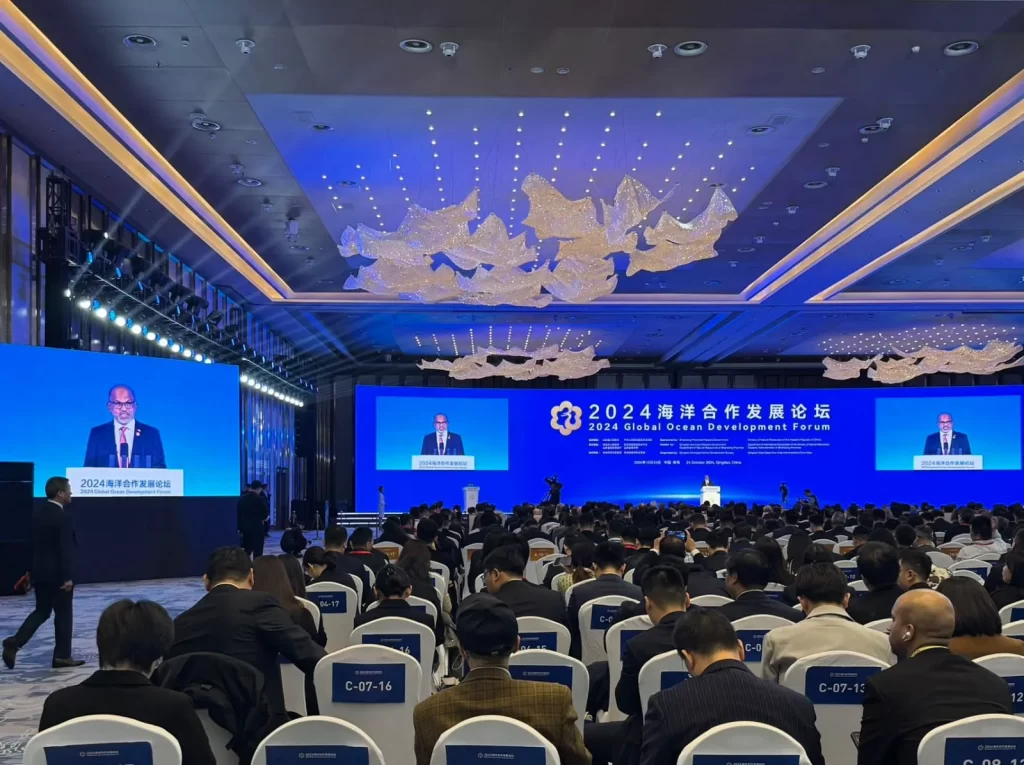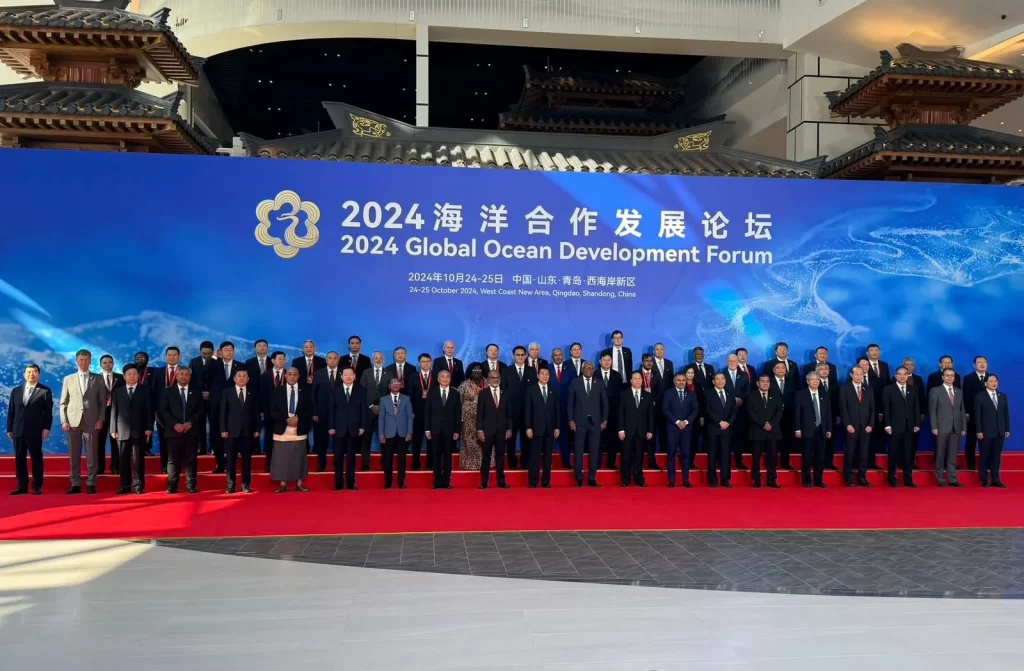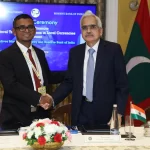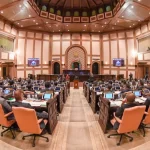JINAN, China — At the heart of the 2024 Global Ocean Development Forum, Deputy Speaker Ahmed Nazim spoke about the shared responsibilities of nations toward marine conservation and sustainable development. Addressing a distinguished audience in Shandong on Wednesday, Nazim emphasized the urgent need for international cooperation to tackle the challenges facing the world’s oceans.
Nazim began by acknowledging Shandong’s leadership in clean energy and environmental stewardship. “This region is known not only for its maritime heritage but also for its commitment to clean energy and sustainability,” he said, thanking Shandong’s Governor for the warm welcome.
He described Shandong as a “symbol of China’s dedication to progress and environmental stewardship” and praised its role in promoting a sustainable blue economy.
The Deputy Speaker highlighted the challenges currently endangering the world’s marine environments, citing pollution, overfishing, and ocean acidification. “These problems are not isolated,” Nazim warned, “and they demand a united, global response.” He stressed the significance of the upcoming 2025 UN Ocean Conference, viewing it as a key milestone in the global movement for ocean conservation.
Nazim underscored the importance of Sustainable Development Goal 14, which calls for the conservation and sustainable use of oceans, seas, and marine resources. In his view, international collaboration is not just desirable but essential: “The international community must come together, mobilizing resources, knowledge, and innovative ideas to protect and restore our oceans.”
Throughout his speech, Nazim frequently returned to Shandong’s achievements in marine conservation and clean energy. He noted the 31 marine ecological preservation and restoration projects underway in the province, as well as Shandong’s investment in five major clean energy bases. These initiatives, he said, “position Shandong as a leader in renewable energy and underscore the deep connection between ocean health and clean energy solutions.”
Nazim’s remarks drew a clear line between Shandong’s efforts and the Maldives’ own goals for sustainability. He lauded the province’s success in rural development and its ability to blend traditional knowledge with modern innovation. “For the Maldives, where community-led development is essential,” he noted, “this approach highlights the potential of local empowerment.”
The Maldives, he explained, shares Shandong’s close connection to the ocean. The country aims to mirror some of the province’s initiatives, including advancements in sustainable aquaculture and marine resource management. “By embracing clean energy, sustainable tourism, and advanced marine resource management, the Maldives can follow Shandong’s lead,” said Nazim.
Concluding his speech, Nazim called for strengthened partnerships between regions like Shandong and island nations such as the Maldives. “Our task, therefore, is to continue building on these successes together,” he urged. “Let us harness the power of partnerships, innovation, and regional leadership to ensure that our oceans and our planet have a sustainable and resilient future.”
